Understanding Senior Isolation and the Need for Companionship
Social isolation and loneliness among seniors are urgent public health issues that impact mental, emotional, and physical well-being. This article explores how companion care, particularly through home health services and adult day programs, plays a vital role in reducing senior isolation, promoting mental health, and fostering longevity.
The Distinction Between Social Isolation and Loneliness Among Seniors
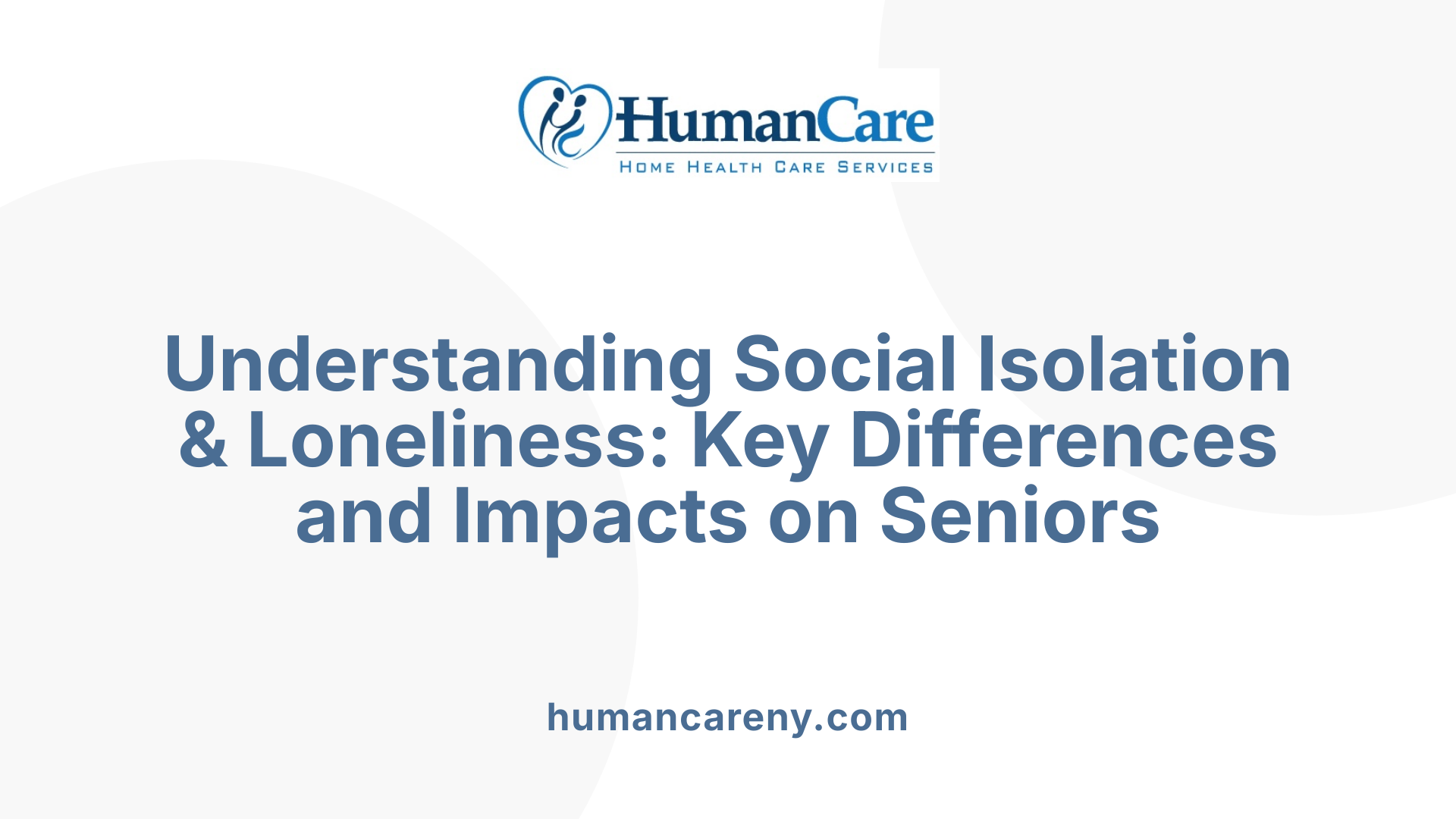
What are Social Isolation and Loneliness?
Social isolation refers to an objective state where seniors have limited social contact or interaction with others. In contrast, loneliness is a subjective feeling where individuals perceive a disconnection from others, regardless of how much social contact they actually have.
How Do These Conditions Affect Seniors' Mental and Physical Health?
Both social isolation and loneliness pose serious risks to seniors’ mental and physical well-being. These conditions can lead to feelings of sadness, anxiety, and stress. Social isolation often leads to reduced social engagement, which exacerbates loneliness and can provoke negative emotional states.
What Are the Possible Consequences?
The health consequences of social isolation and loneliness in elderly individuals are wide-ranging. They include:
- Depression: Increased feelings of sadness and hopelessness.
- Cognitive Decline: Higher risk of memory loss and dementia.
- Heart Disease: Social disconnection is linked to cardiovascular illness.
- Increased Mortality: Reduced social interactions correlate with higher death rates.
Research has documented that these negative outcomes are strongly influenced by the lack of meaningful social relationships. Combatting social isolation with companion care and meaningful engagement can improve seniors’ overall health and potentially extend their lifespan.
How Companion Care Addresses Senior Isolation

Building Relationships and Emotional Connections
Companion care for seniors is centered on creating strong emotional bonds that provide comfort and trust. Through meaningful interactions, caregivers help alleviate feelings of loneliness and foster a sense of belonging. These relationships are crucial for seniors, especially those living alone, as they offer emotional stability and security.
Providing Physical, Emotional, and Social Support
Companion caregivers deliver comprehensive support tailored to each senior’s needs. This includes assistance with daily activities, emotional encouragement, and facilitating social interactions. Such holistic care helps maintain seniors' independence while promoting mental well-being.
Role of Companion Caregivers in Daily Assistance
Caregivers assist with essential tasks like meal preparation, grooming, and medication reminders. This support not only helps seniors manage their health but also creates opportunities for regular social interaction, reducing isolation risks.
Tailoring Activities to Individual Preferences
Personalized care plans allow caregivers to engage seniors through activities aligned with their interests and capabilities. Whether it's puzzles, card games, or story sharing, these tailored activities build trust and comfort, making socialization enjoyable and meaningful.
Encouraging Participation in Hobbies, Exercise, and Social Connections
Caregivers motivate seniors to take part in hobbies, group exercises, and community events. This engagement combats loneliness by fostering friendships and a sense of community involvement, ultimately enhancing their quality of life.
Live-In and In-Home Caregiving: Round-the-Clock Support for Seniors
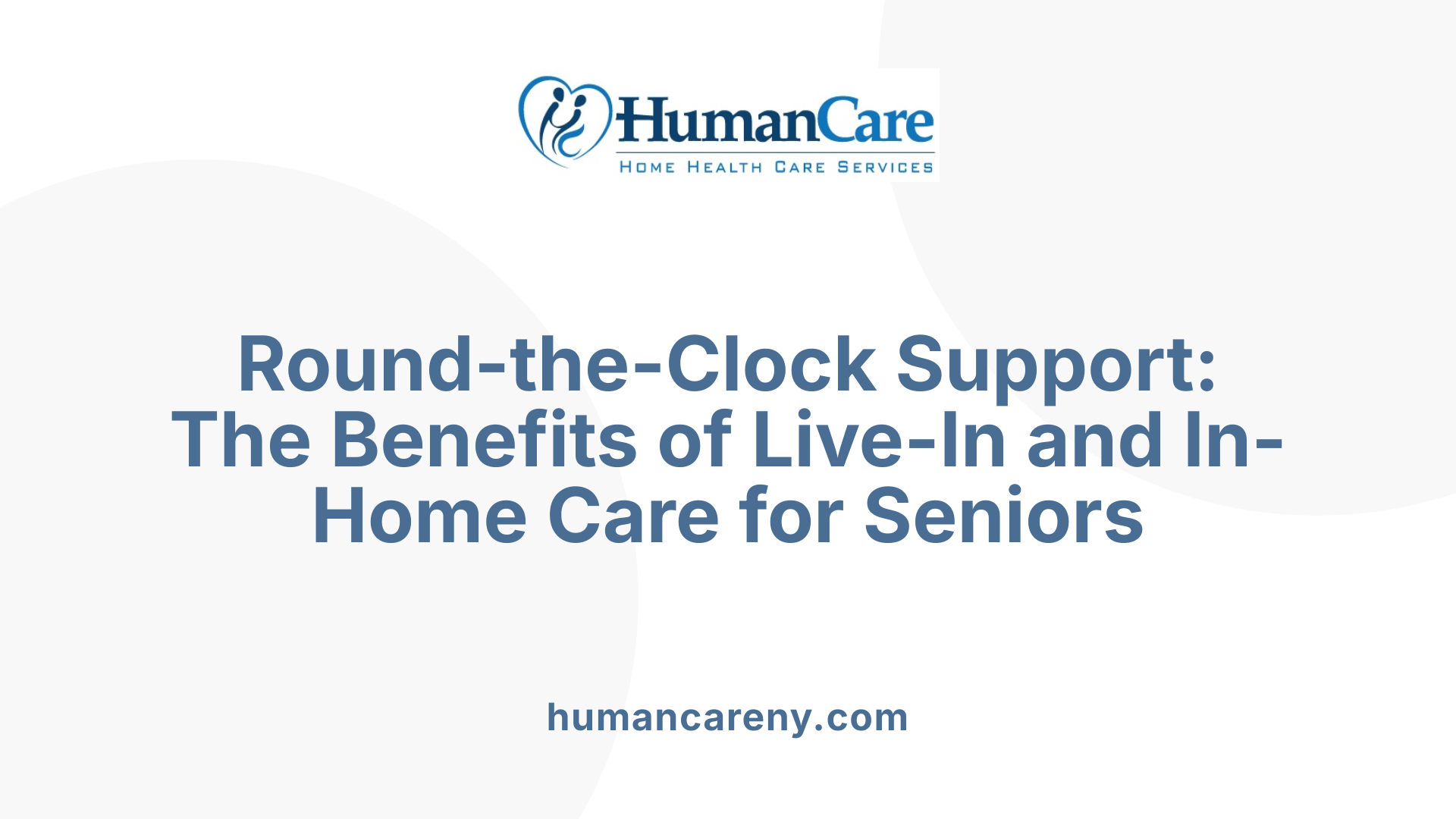
Benefits of Live-In Caregivers in Preventing Isolation
Live-in caregivers play a crucial role in preventing social isolation among seniors by providing continuous companionship and attentive support. Their round-the-clock presence ensures seniors are not left alone for extended periods, effectively reducing feelings of loneliness and promoting emotional well-being.
Assisting with Daily Tasks and Providing Continuous Companionship
These caregivers assist with essential daily activities such as meal preparation, grooming, and medication reminders. By helping with these tasks, they ensure seniors can live comfortably and safely in their homes while also offering ongoing social interaction — a vital factor in improving mental health.
Ensuring Seniors Maintain Independence While Receiving Emotional and Physical Support
While offering physical care, live-in caregivers focus on maintaining seniors' independence. They encourage participation in hobbies, exercises, and social activities tailored to individual preferences. This approach fosters trust, understanding, and a sense of control over daily life which is important for emotional resilience.
How Caregivers Help with Navigation of Digital Technology to Expand Social Engagement
Beyond direct care, caregivers assist seniors in navigating digital technologies such as video calls and social media platforms. This guidance expands seniors' social networks, allowing them to connect with family, friends, and community events, further diminishing isolation and fostering meaningful engagement.
Overall, live-in and in-home caregiving services provide a comprehensive support system that enhances seniors' quality of life by blending physical assistance with emotional support and social connectivity.
Emotional and Mental Health Benefits of Companion Care
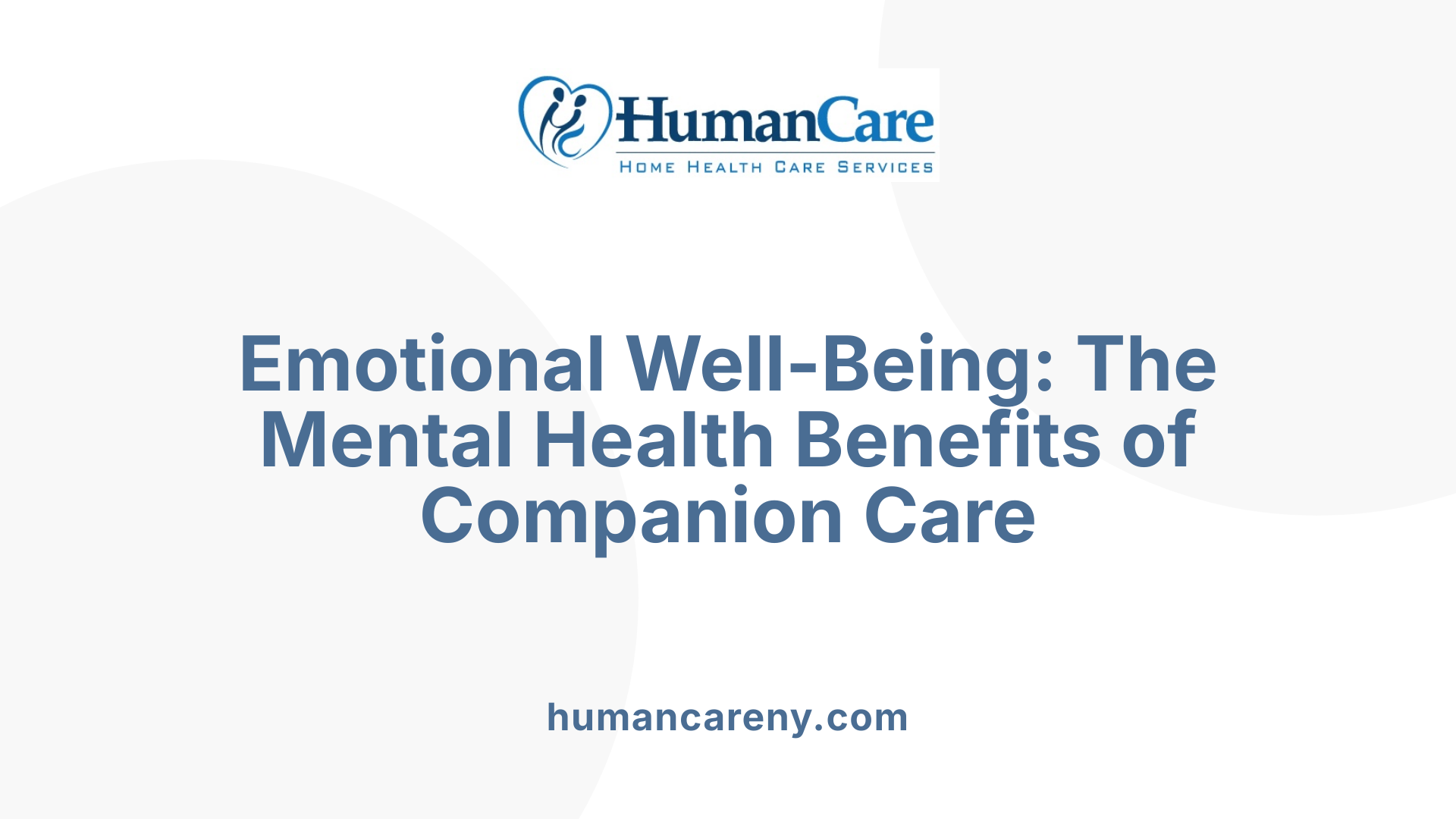
How does companion care provide emotional support to combat sadness, anxiety, and loneliness?
Companion care offers vital emotional support by building trusting, caring relationships with seniors. Caregivers engage in meaningful conversation and provide companionship that helps seniors cope with feelings of sadness, anxiety, and loneliness. Regular visits from caregivers bring emotional security and reduce distress, offering stability and reassurance to those living alone.
In what ways does companion care reduce risks of cognitive decline, depression, and stress?
Engagement in activities such as puzzles, games, and shared stories, facilitated by companion caregivers, helps maintain cognitive agility and memory. This stimulation reduces the risk of dementia and depression. Additionally, emotional support from caregivers helps lower stress levels, promoting better mental health and a strengthened immune system.
How does companion care facilitate meaningful social interactions and emotional security?
Caregivers encourage participation in social, recreational, and community events tailored to seniors' preferences. They also help seniors navigate digital tools like video calls and social media to maintain and expand social connections. These interactions foster a sense of belonging and emotional security, reducing feelings of isolation.
How do regular visits and activities increase optimism and sense of belonging?
Frequent companion visits create opportunities for daily reassurance and social engagement, which uplift seniors’ moods and promote optimism. Activities customized to individual interests foster trust and comfort, helping seniors feel valued and connected, which greatly improves their overall sense of belonging and emotional well-being.
Adult Day Services: Community-Based Solutions to Enhance Social Interaction
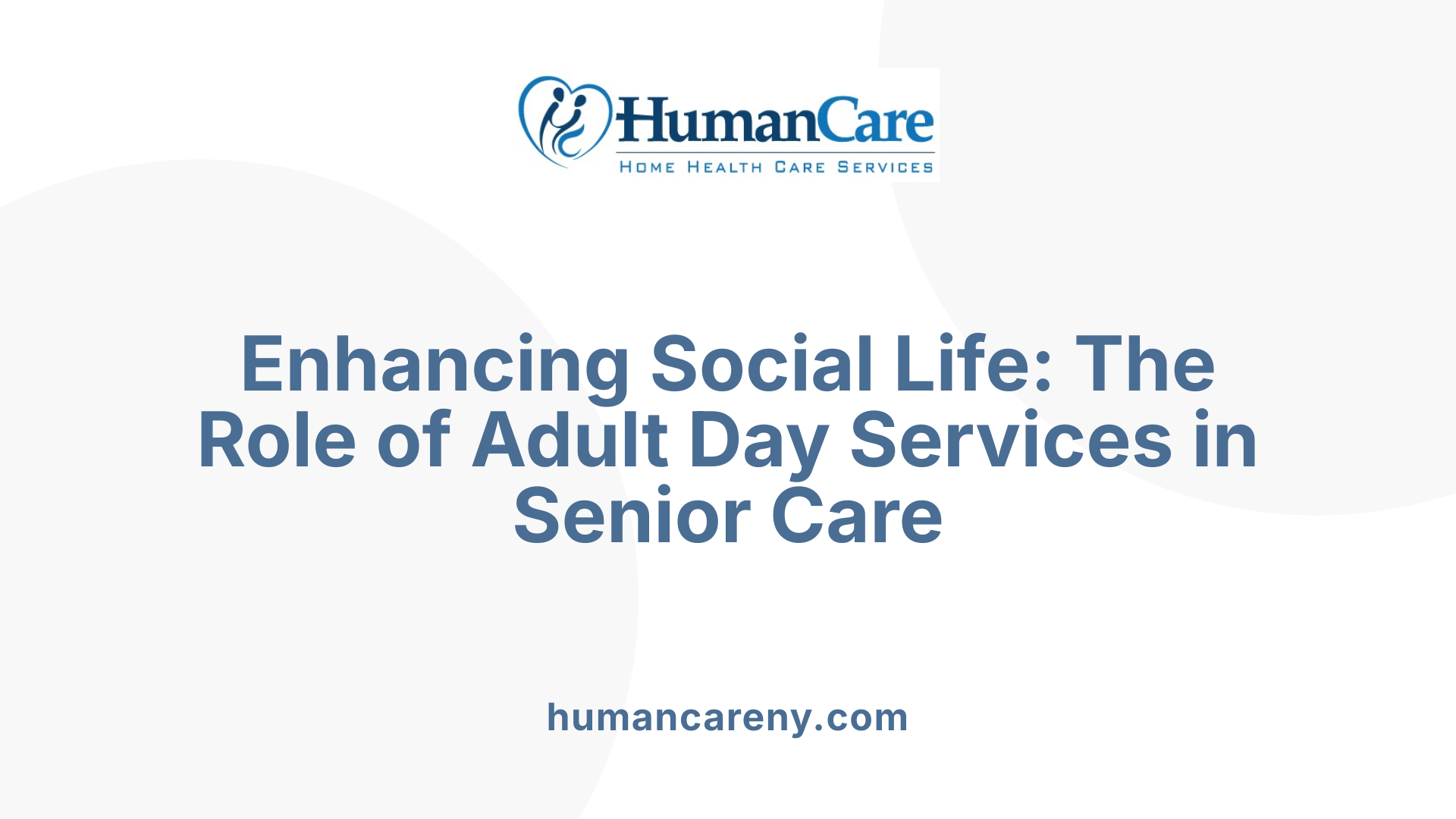
What Role Do Adult Day Services Play in Supporting Seniors?
Adult Day Services (ADS) centers provide a vital community-based resource that supports older adults through health monitoring, nutritious meals, engaging social activities, and respite for caregivers. These centers help seniors maintain independence while addressing their physical, social, and emotional needs in a safe, person-centered environment.
How Do Adult Day Services Benefit Seniors’ Mental Health?
Participation in ADS is linked to increased social interaction and reduced loneliness, which are crucial for improving mental health among the elderly. By engaging in group activities and receiving consistent social support, seniors experience benefits such as decreased feelings of isolation, enhanced cognitive function, and better overall emotional well-being.
How Do ADS Address Diversity and Cultural Inclusion?
ADS centers serve a racially and ethnically diverse population, with over half of the users belonging to minority groups. Many programs incorporate cultural and language elements tailored to participants’ backgrounds to foster meaningful engagement and respect individual preferences.
What Challenges Have ADS Faced Recently?
The COVID-19 pandemic resulted in widespread ADS closures, significantly worsening social isolation and health risks among vulnerable seniors. Additionally, barriers such as inadequate Medicaid reimbursement and lack of public awareness limit access and sustainability of these essential services. There is an ongoing effort to rebrand ADS to better communicate their comprehensive benefits and to increase policy and public support.
Personalized Care Plans and Family Involvement to Enhance Companion Care
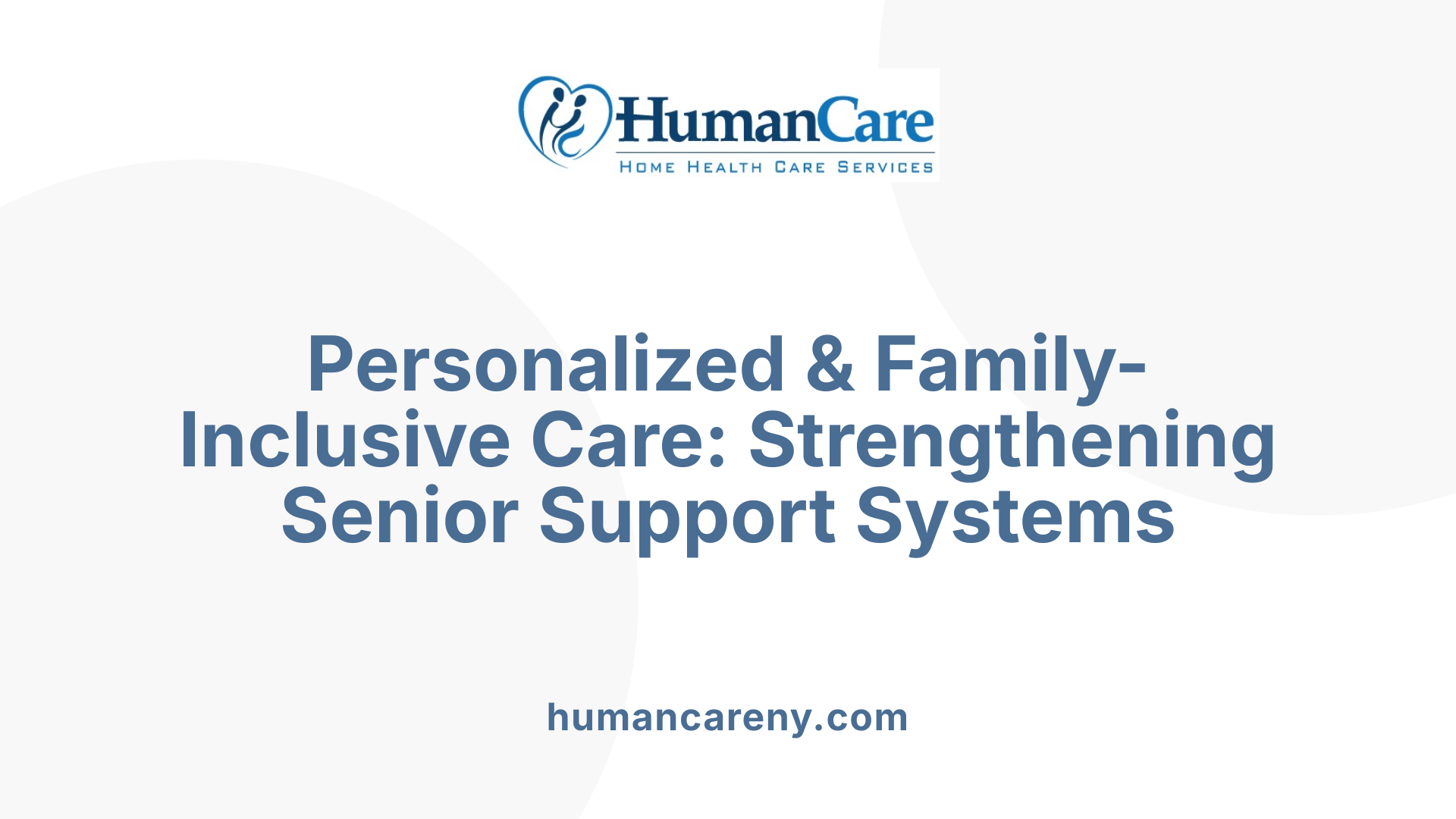
Importance of individualized care plans tailored to each senior's needs and interests
Effective companion care hinges on personalized care plans that cater to each senior’s unique preferences, interests, and health requirements. Caregivers adapt hobbies, social activities, and daily routines according to these plans, fostering trust, comfort, and meaningful engagement. This tailored approach not only encourages seniors to participate actively in life but also reduces feelings of loneliness and enhances mental well-being.
Role of family resource home care and agencies in alleviating loneliness
Family Resource Home Care and similar agencies play a vital role by providing comprehensive companion care services designed to combat isolation and loneliness. These agencies emphasize emotional support and social engagement, creating strong relationships between seniors and caregivers. Through personalized visits and activity planning, they help seniors build connections and maintain a sense of belonging, which mitigates risks like depression and cognitive decline.
Reliable scheduling and fostering family involvement as components of successful companion support
Consistent scheduling is essential for providing seniors with stable and reassuring companionship. Reliable visitation routines reduce anxiety and help establish emotional security. Moreover, active family involvement complements companion care by enhancing communication, reinforcing social bonds, and ensuring the care plan reflects the senior's evolving needs. Together, these elements create a supportive environment that promotes seniors’ mental and physical health effectively.
Promoting Healthy Lifestyle Habits Through Companion Support
How Do Caregivers Encourage Healthy Habits Among Seniors?
Caregivers play a vital role in motivating seniors to maintain healthy habits. They provide encouragement to stay active through regular exercise tailored to the individual's abilities. They also support nutritious eating by assisting with meal preparation and reminding seniors about medication schedules, ensuring proper adherence.
What Is the Connection Between Social Engagement and Physical Health Improvements?
Social engagement promoted through companion care has strong links to better physical health. Active social lives encourage seniors to remain physically engaged and mentally alert. This interaction reduces feelings of isolation and depression, both of which can negatively affect overall health.
How Does Companion Care Help Prevent Health Problems and Reduce Risks?
Companion care helps prevent health issues by fostering routines that include exercise, healthy nutrition, and medication compliance. Caregivers assist with daily activities such as grooming and mobility support, which can reduce the risk of falls and injuries. Through personalized attention, seniors receive the care needed to maintain independence while minimizing health risks.
These elements combined show that companion support goes beyond emotional benefits, extending to essential physical health improvements that enhance the quality of life for seniors.
The Broader Impact of Companionship on Longevity and Quality of Life
Research Linking Social Interaction With Increased Longevity
Extensive research involving 458,146 participants over 12.6 years demonstrates a strong connection between social interactions and reduced mortality risk among elderly individuals. Social engagement plays a crucial role in promoting not only longer life expectancy but also improved overall health.
Objective Social Connections as Predictors of Reduced Mortality Risk
Studies reveal that objective social interactions—such as regular visits from friends or family—are more powerful predictors of longevity than subjective feelings of loneliness. These tangible social contacts contribute significantly to better mental and physical health outcomes.
How Companionship Enhances Quality of Life and Delays Institutionalization
Companion care fosters meaningful emotional connections and supports daily activities like meal preparation, grooming, and medication reminders. This comprehensive support helps seniors maintain independence and delays the need for institutional care. Additionally, activities such as puzzles, games, and exercise engaged in with caregivers can improve cognitive health and reduce risks like dementia.
Community and Agency Roles in Fostering Social Bonds for Seniors Living at Home
Organizations such as Family Resource Home Care and Sadie G. Mays Health & Rehabilitation Center emphasize personalized care plans that promote emotional support and social engagement. Caregivers facilitate social connections by adapting activities to seniors' preferences, encouraging participation in community events, and helping navigate digital technologies like video calls. These efforts create a strong sense of belonging, alleviate loneliness, and contribute to seniors’ mental well-being while they continue to live comfortably at home.
Companionship: A Cornerstone for Senior Well-Being and Longevity
Companionship emerges as a pivotal factor in addressing the complex challenges of senior isolation and loneliness. Through multifaceted approaches including personalized in-home care, live-in caregiving, and community programs like Adult Day Services, seniors receive vital emotional, social, and physical support. These connections combat the detrimental effects of isolation, promote mental and physical health, and contribute significantly to longer, healthier lives. As the aging population grows, prioritizing companionship in elder care is essential for fostering dignity, independence, and a renewed sense of belonging.
References
- The Role of Companion Care in Preventing Senior Isolation
- The Vital Impact of Companion Care for the Elderly
- Social Connections in Senior Care: Combatting Loneliness
- How Companion Care Can Help Combat Senior Isolation ...
- HOW IN-HOME COMPANIONSHIP IMPROVES MENTAL ...
- Adult day services: a potential antidote to social isolation ...
- Elevating Quality of Life: The Impact of Home Health Care ...



